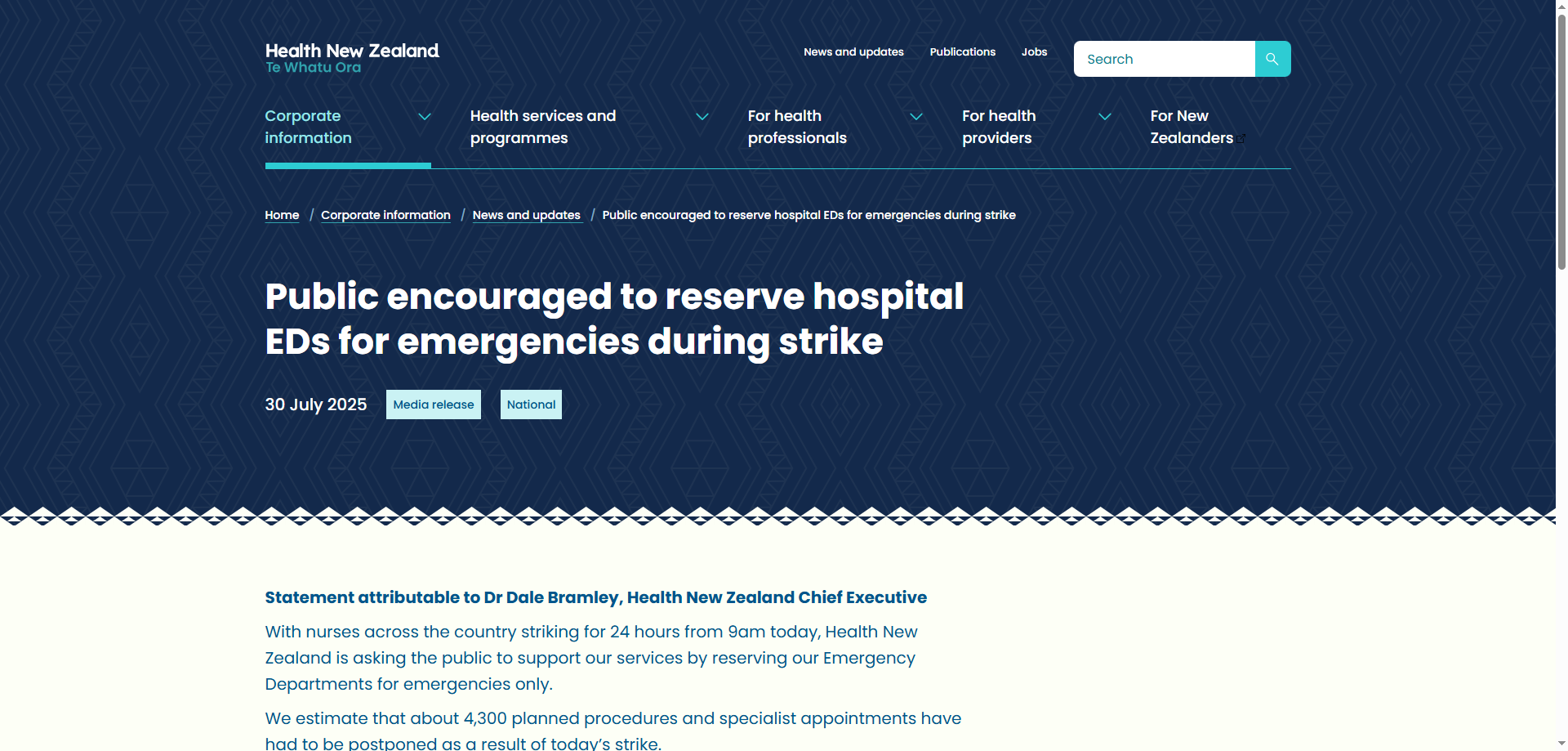
WELLINGTON - More than 36,000 nurses, midwives and health care assistants across New Zealand started a strike for 24 hours from Wednesday morning after negotiations on salary and staff recruitment failed with the authority.
It is understood that the wage offered by the public health authority, Health New Zealand, was not satisfactory to the nurses, and the staff shortage is becoming a big concern.
ALSO READ: New Zealand to ban surcharges on in-store electronic payments
According to national broadcaster Radio New Zealand, Health New Zealand was offering a 3 percent pay rise over 27 months, while the New Zealand Nurses Organization's (NZNO) counteroffer sought a 5 percent pay rise over two years.
Meanwhile, figures obtained by NZNO from Health New Zealand show surgical hospital wards were short-staffed more than half of all day shifts last year.
READ MORE: New Zealand introduces new laws to govern space infrastructure
NZNO Chief Executive Paul Goulter accused the authority of refusing to meet the urgent claim to recruit into roles identified as being necessary for safe staffing.
"NZNO has raised concerns about chronic and ongoing staff shortages continually throughout the collective agreement bargaining process which began last September," said Goulter.
READ MORE: New Zealand targets doubling intl education revenue by 2034
The strike will be a complete withdrawal of labor at every place in New Zealand where Health New Zealand provides health care or hospital care services, according to NZNO.
However, life-preserving services will continue to be provided. "The public can be reassured that we have an agreement with NZNO for life-preserving services support throughout the strike and our hospitals and emergency departments will remain open," Health New Zealand Chief Executive Dr. Dale Bramley said.


